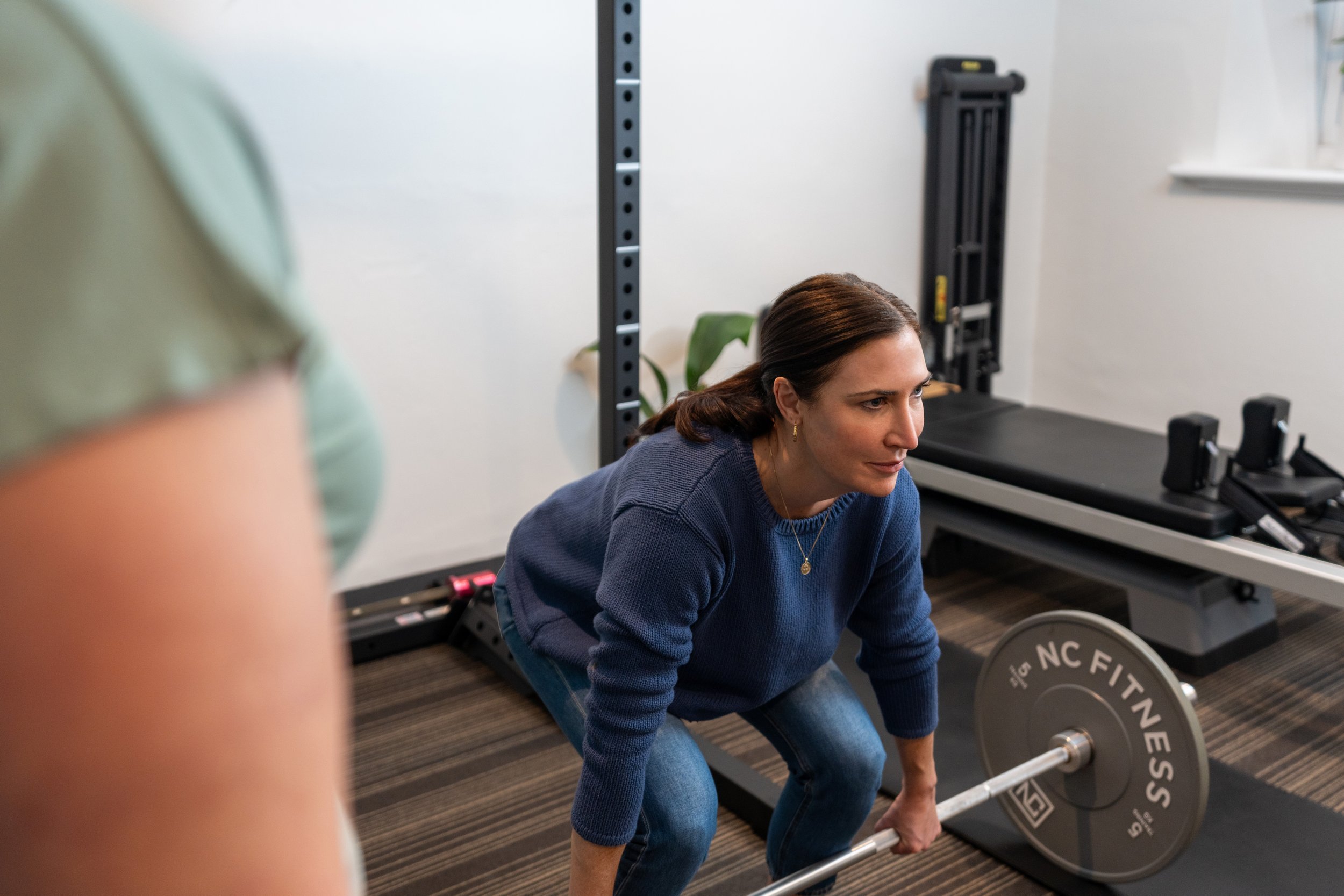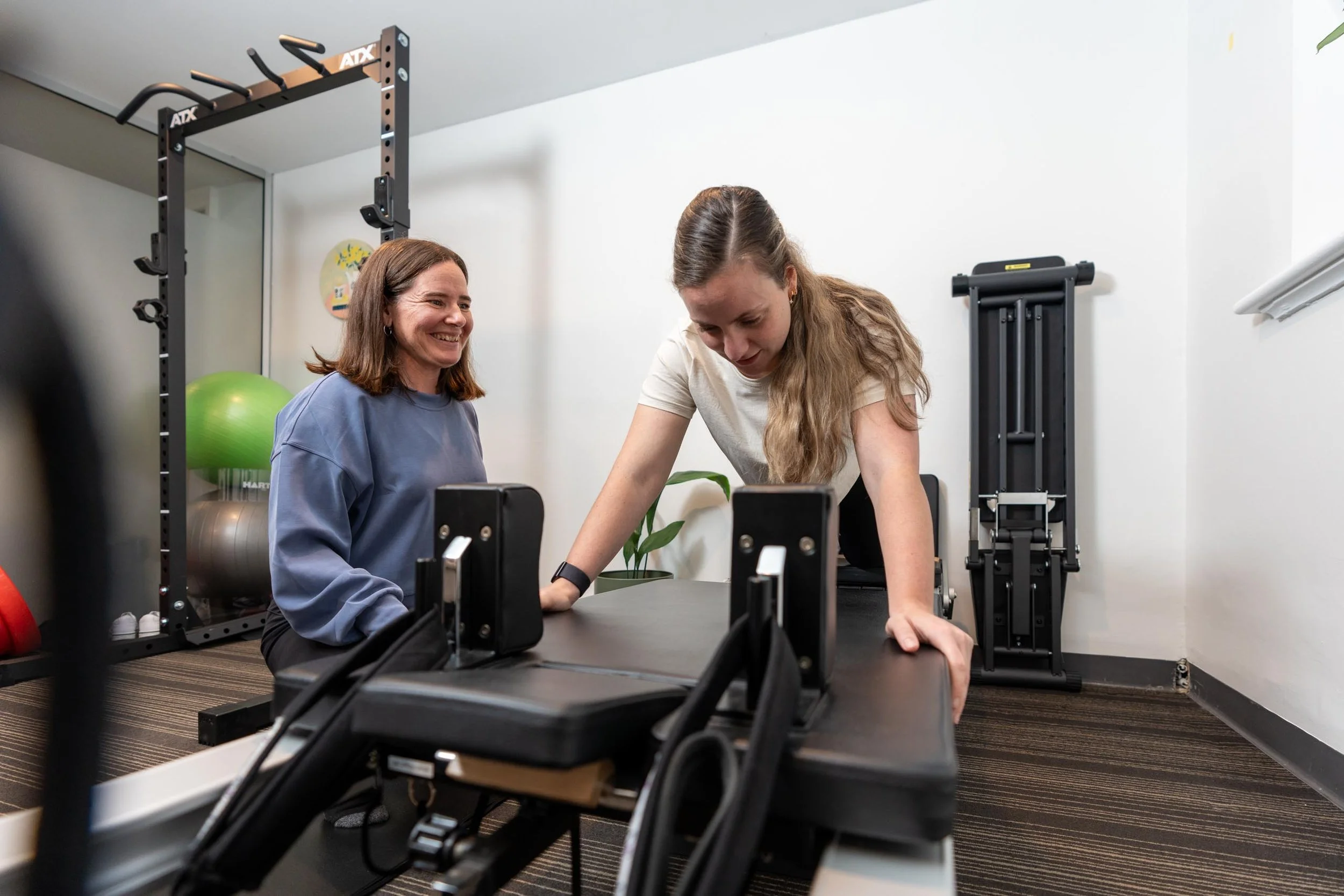
Tailored
exercise physiology
Pelvic Health. Mental Wellbeing. Holistic Care. Individual Focus.
Our Services
Movement & me provides exercise physiology services to adults who are experiencing symptoms in one or both of two areas: gynaecological / pelvic health and mental health.
Our gynaecological/pelvic health service focus is with people whose primary concern involves anatomy that is assigned female, regardless of their gender identity. In our mental health service our focus is with people who predominantly identify with womanhood. Having said this, we understand that experiences concerning gender identity and sex anatomy can be complex, intertwined and are often deeply personal. Please get in touch if you would like to talk to us about whether our services might suit you. We welcome these conversations.
In addition to work with adults with who are experiencing persistent pelvic pain, we also work with adolescents who are experiencing these symptoms.
While our focus is on gynaecological/pelvic and mental health, this doesn’t mean you can’t have other health concerns as well. We see you as a whole person, and we’ll work with everything that’s happening in your body. Many of our clients have more complex healthcare needs.

Services
-
Persistent pelvic pain
Sometimes long-term pelvic pain is given a diagnosis, such as endometriosis, vaginismus and painful bladder syndrome. For other people, their pain has not been given a name. Sometimes people are told their pain is normal and they should put up with it. Whatever your history, we know your pain is real and we take it seriously.
In people with female anatomy, persistent low back pain is sometimes linked to pelvic conditions. If you are experiencing ongoing low back pain, we would love to hear from you. Your pain may or may not be related to something in your pelvis. Either way, we’re very happy to work with you.
Learning to use pain science in combination with movements we choose together can be game-changing in managing pain. We tailor our education and movement plans towards your goals, whatever those look like. It might be fewer days off work or study, being able to use tampons, or getting back to a sport you love.
We want to work with you to better understand the different ways you can use movements you enjoy, helping you manage your pain and live a fuller life.
We work with a range of persistent pain conditions, including:
Persistent low back pain
Endometriosis and adenomyosis
Vaginismus
Pelvic organ prolapse
Painful bladder syndrome
Other pelvic/gynaecological pain
Other female pelvic concernsFemale pelvises are busy places. There’s a lot going on, and sometimes things can become difficult to manage. Symptoms connected with incontinence, perimenopause or perinatal concerns, for example, can have a profound impact on people’s confidence and wellbeing.
Movement tailored to specific conditions can help you develop the capacity and assurance to manage your symptoms and get back into life. For some people, having to always know where the nearest toilet is restricts their participation in everything outside their home. For others, the physical and emotional impact of undergoing assistive reproductive technology treatment (ART) can take a toll. Someone else might be uncertain about how to exercise safely during pregnancy.
We want to share with you our knowledge of how different ways of moving can alter your physiology. Together we can use your unique strengths, priorities and preferences to build a movement strategy that is meaningful for you.
We work with a range of other female pelvic concerns, including:
Incontinence
Exercise during pregnancy
Post-natal return to exercise
Need an appointment?
We offer appointments in-person at our Leabrook practice, or via video telehealth. -
Sometimes mental health conditions can make moving our body seem like moving a mountain. We know it will help, but we just can’t. Movement & me work together with you to build a plan for taking the first step and moving forward, wherever you’re starting from.
Some mental health conditions are specific to female physiology. Premenstrual dysphoric disorder, perinatal and perimenopausal depression, for example, tend to be related to how a person’s brain responds to the fluctuations in sex hormones across the female life cycle. Movement you enjoy, at the right times and with variable levels of intensity, can help reduce the impact of these fluctuations so you can concentrate better, have more energy and more stable moods.
Other mental health conditions and concerns are not directly associated with female physiology. We work with a range of these, including:
General stress and fatigue
Anxiety
Depression
Trauma
PMDD
PMS
Postnatal depression
Perinatal depression
Perimenopausal depression
Research shows that movement triggers changes in our brain chemistry. It improves the way our brain works in so many ways, including the parts that generate our emotions. We’re all different, and it’s useful to learn what kinds of movements work best for you and your brain.
We are keen to work together with you, and any other practitioners who are supporting you. We want to help you find ways of moving that you enjoy, feel motivated by, and help you feel stronger and more in control.
Need an appointment?
We offer appointments in-person at our Leabrook practice, or via video telehealth.


